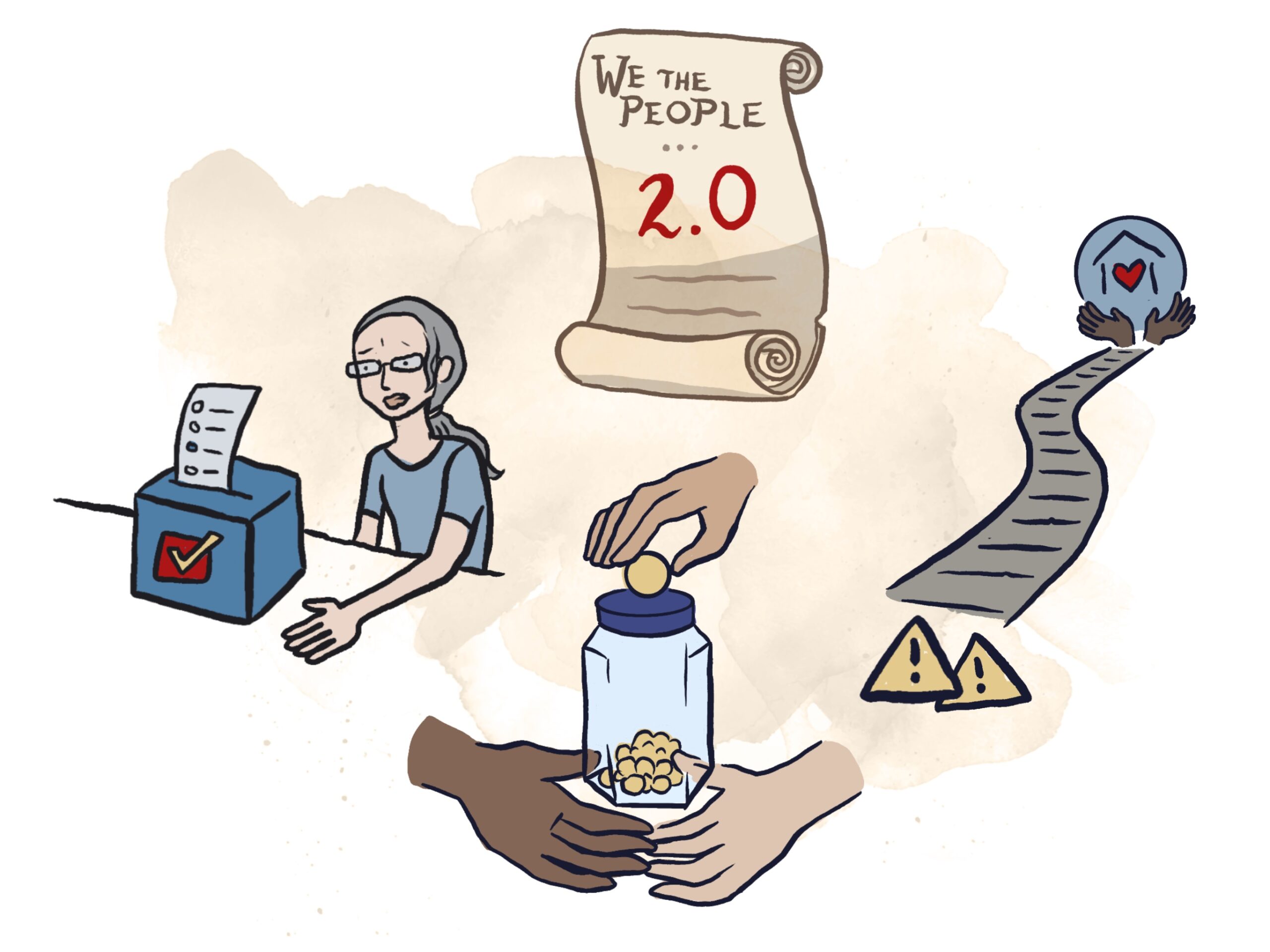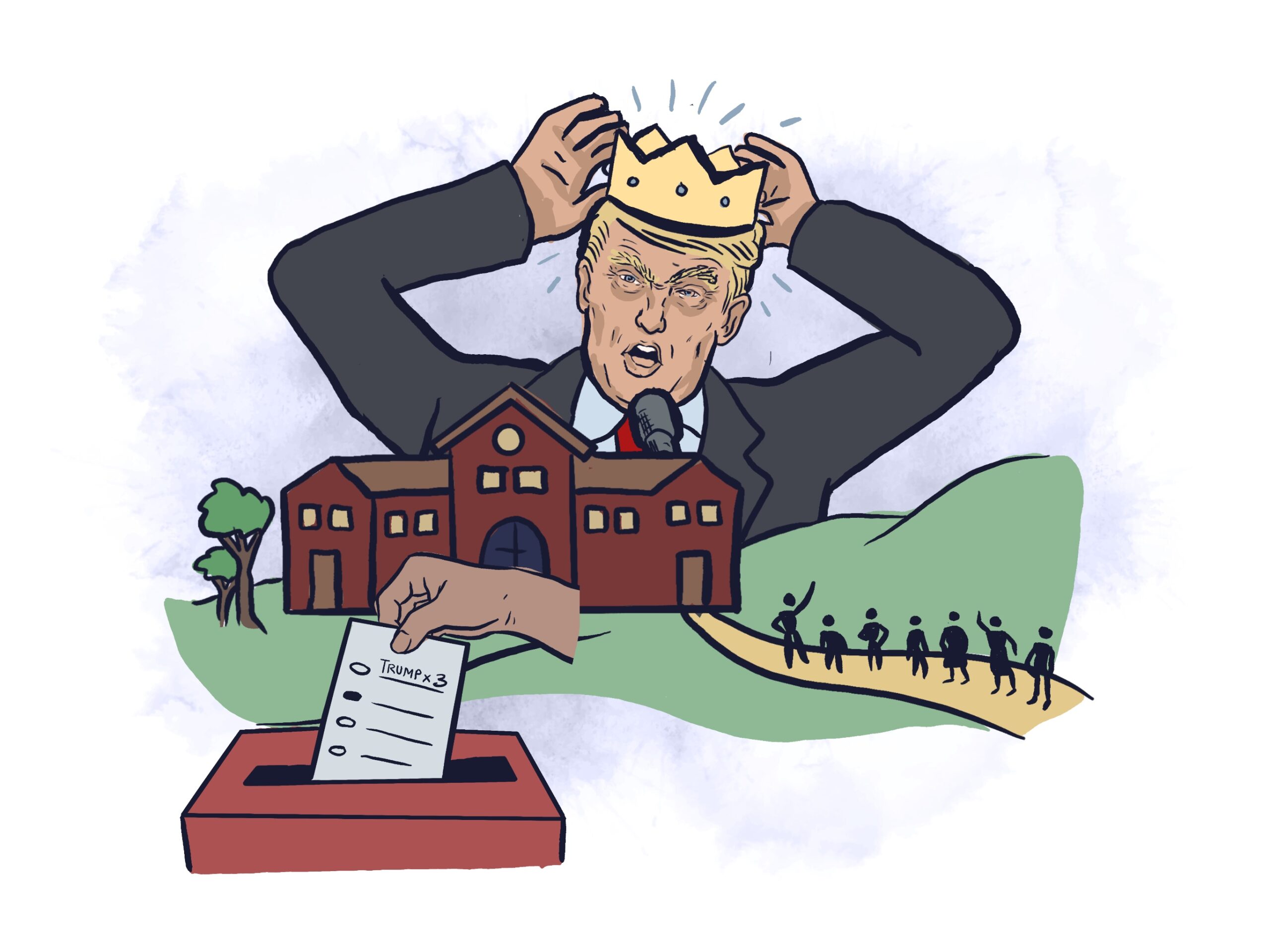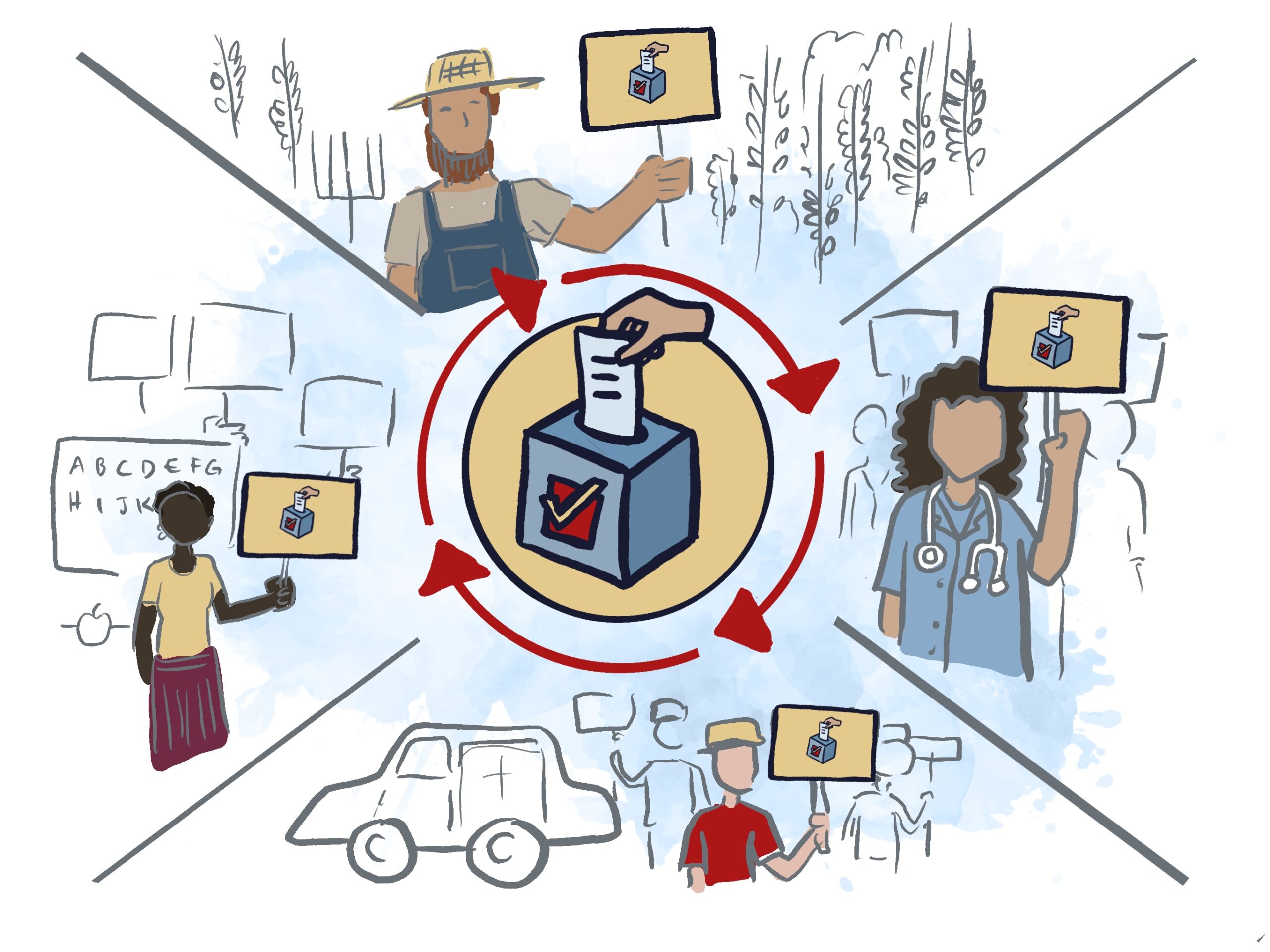You arrive at a meeting packed with a wide range of different groups, including poll workers and others at the election’s front lines. Leaders from the mainstream Constitutional Convention come with an updated Defector’s Pledge after results from the 900+ cities that participated in their local conventions. Even some whistleblowers hidden through the Underground Railroad arrive. Fundraising committees come with promises of millions of dollars for a strike fund.


The sense of urgency in the meeting is hot. Whistleblowers confirm rumors that Trump is trying to stay in power for a third term. Colleges have already exploded into walkouts — some violent, often egged on by extremists. In six states, Republican governors sent in the National Guard to quell protests. Using that pretext, the governors of Texas and Florida announce that due to the ongoing “state of emergency,” they will be unable to hold elections as planned.
Members of the Strike Committee lead the proceedings, “It is time we escalate into full noncooperation. We need to prepare for ongoing strikes — full disobedience across every sector of society — to insist on having free and fair elections.” Nobody disagrees with the need, but disagreement rages about the tactics, the timing, and the methods.


In a country as big as the U.S., and where only 10% of workers are unionized, a full general strike is very difficult. Some grounded facilitation helps hold the meeting together as people come from very different walks of life and inclinations. In the end, it’s decided that rolling strikes will commence in two weeks. Rolling strikes allow multiple targets in rapid succession and coordination without day-to-day agreement. Some workplaces shut down for an hour while others stay dark for a week. The demand: free and fair elections.
